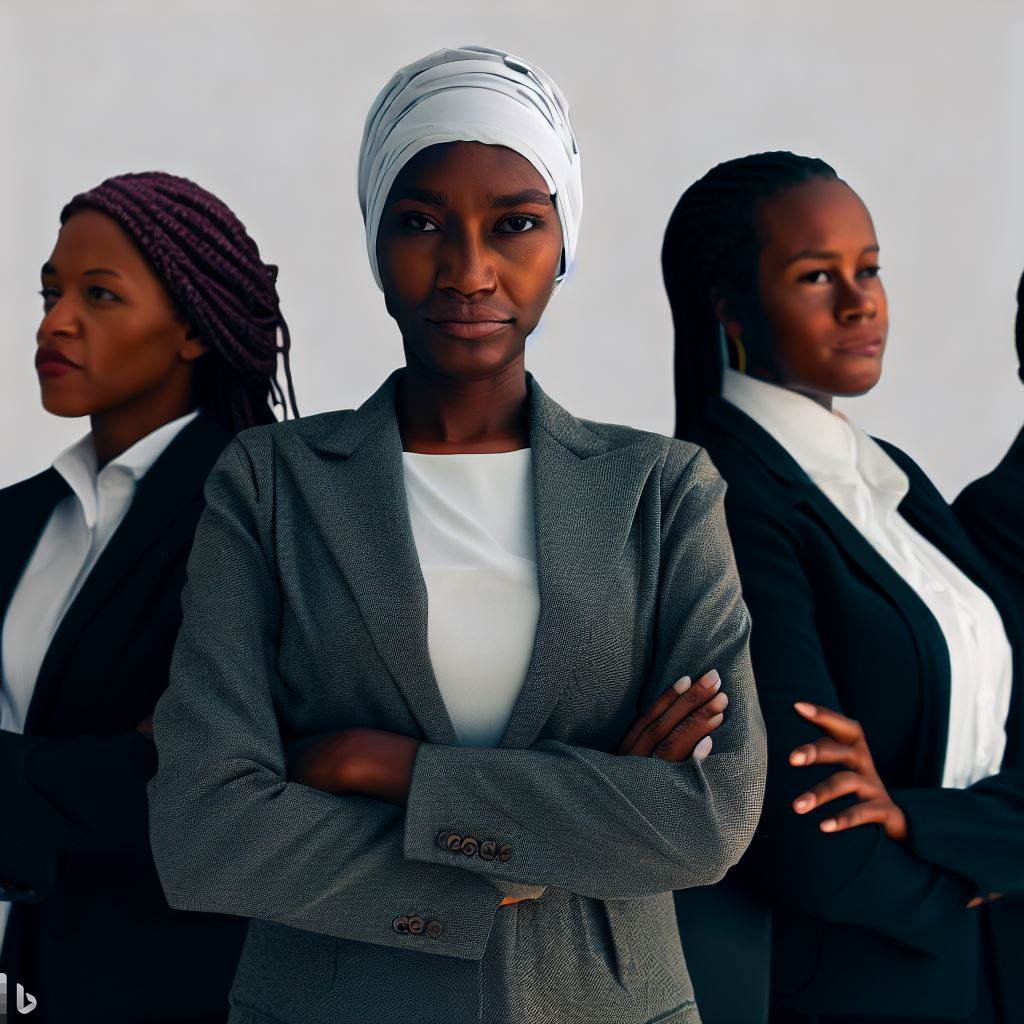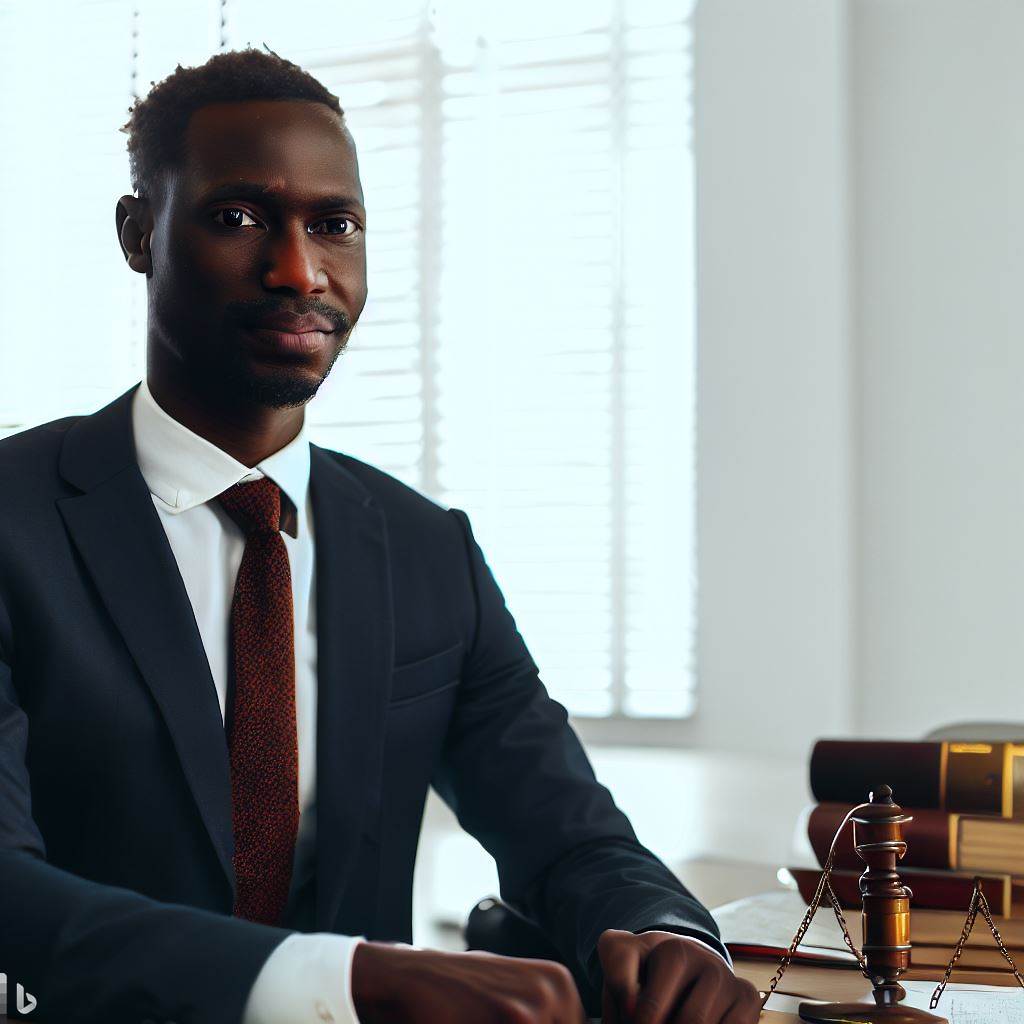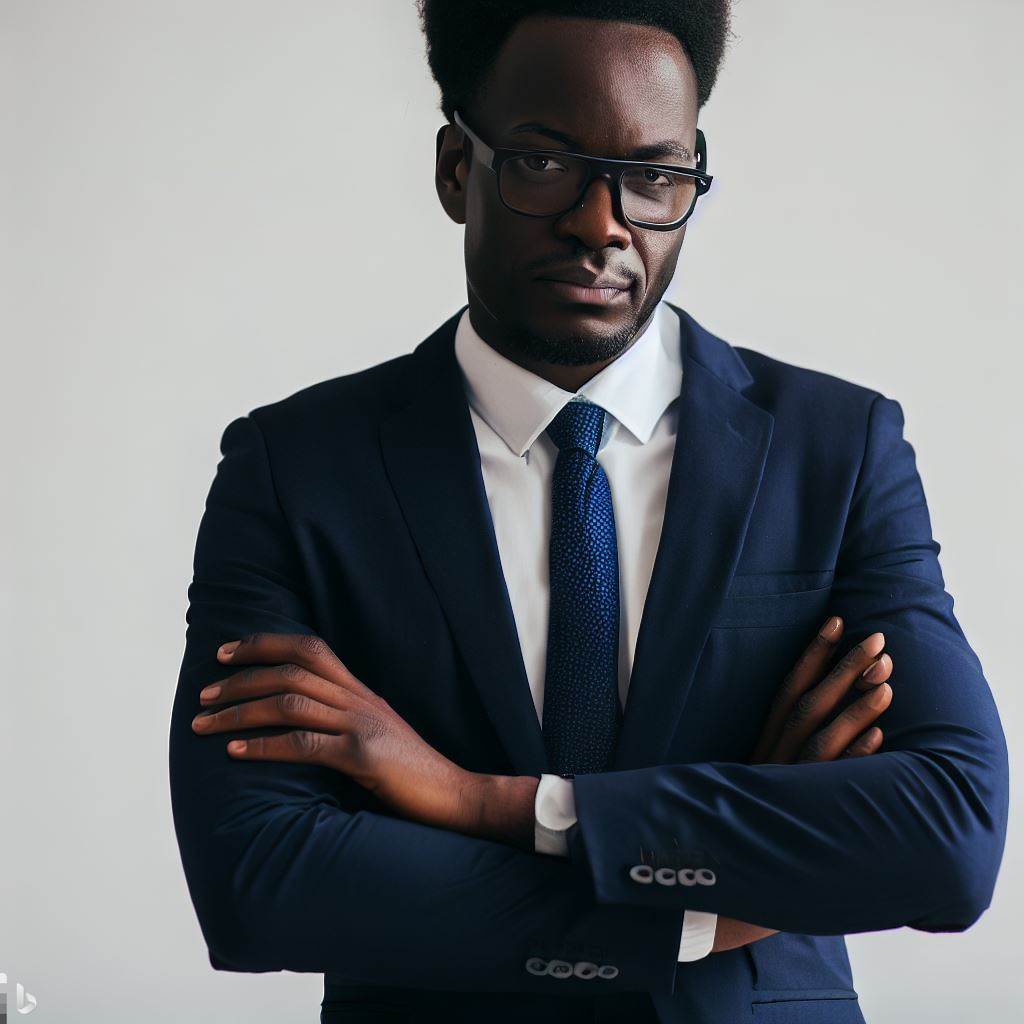Introduction
The role of a lawyer in the fight against corruption in Nigeria is pivotal, given that corruption is a widespread issue in the country that obstructs development and erodes trust.
Understanding the crucial role lawyers play in combating corruption is essential for the success of anti-corruption initiatives.
Prevalence of Corruption in Nigeria
Corruption has deeply rooted itself in various aspects of Nigeria’s society, impeding progress and development.
Understanding Lawyers’ Role
Understanding the pivotal role lawyers play in combating corruption is essential for several reasons:
- Legal Expertise: Lawyers possess the legal knowledge to navigate complex corruption cases, ensuring due process.
- Advocacy: Lawyers serve as vocal advocates, representing the voices of justice against corrupt practices.
- Investigation: They unearth evidence, exposing corrupt acts and individuals that undermine the nation’s growth.
- Prosecution: Lawyers lead the legal battle against corruption, holding culprits accountable in courts of law.
- Legal Reforms: Lawyers influence legal reforms that create a hostile environment for corrupt activities.
Challenges Faced by Lawyers
- Threats and Intimidation: Lawyers often face risks when confronting influential, corrupt individuals or entities.
- Lack of Resources: Inadequate resources hinder effective investigation and prosecution efforts.
- Complexity of Cases: Corruption cases involve intricate legal and financial intricacies that demand astute analysis.
Impact of Lawyers’ Efforts
- Deterrence: Successful prosecution sets a deterrent, discouraging others from engaging in corrupt practices.
- Restitution: Lawyers fight for restitution, ensuring ill-gotten gains are returned to the rightful owners.
- Rule of Law: Their efforts strengthen the rule of law, reinforcing a just and accountable society.
In the battle against corruption, lawyers stand as pivotal champions of justice, wielding their legal expertise to dismantle the foundations of corruption.
Their unwavering commitment helps build a Nigeria where transparency, fairness, and progress flourish.
The legal profession in Nigeria
Description of the legal system in Nigeria
- The legal system in Nigeria is based on English common law.
- The Nigerian legal system is a combination of traditional customary law and legislation.
- The legal system is hierarchical, with the Supreme Court being the highest court in the country.
- Other types of courts in Nigeria include the Court of Appeal and the High Court.
Role of lawyers in upholding the rule of law
- Lawyers play a crucial role in upholding the rule of law in Nigeria.
- They ensure that justice is administered in a fair and impartial manner.
- Lawyers advocate for the rights and interests of their clients, ensuring due process.
- They provide legal advice and guidance to individuals and organizations.
- Lawyers also defend the accused and hold the government accountable.
Overview of the Nigerian Bar Association (NBA)
- The Nigerian Bar Association is the umbrella body for all lawyers in Nigeria.
- It was established in 1933 and serves as a professional association for lawyers.
- The NBA regulates the legal profession and sets ethical standards for lawyers.
- It promotes the welfare and interests of its members and the rule of law in Nigeria.
- The Nigerian Bar Association also provides continuing legal education for lawyers.
- It organizes conferences, seminars, and workshops to enhance the capacity of lawyers.
- The NBA advocates for legal reforms and promotes access to justice for all Nigerians.
Basically, lawyers in Nigeria have a significant role in the fight against corruption.
Through their expertise and commitment to upholding the rule of law, they contribute to promoting transparency, accountability, and good governance in the country.
The legal system in Nigeria, which is a mix of customary law and legislation, provides a framework for lawyers to perform their duties.
Under the guidance of the Nigerian Bar Association, lawyers work together to ensure a just and fair society for all Nigerians.
By defending the rights of their clients and holding the government accountable, lawyers play a crucial role in combating corruption in Nigeria.
The legal profession in Nigeria is vital in promoting the rule of law and fostering a culture of accountability and transparency in the country.
Through their efforts, lawyers contribute to building a strong and effective justice system that serves the best interests of Nigerians.
Read: Attorneys and Human Rights in Nigeria: An Overview
Understanding corruption in Nigeria
Definition and forms of corruption prevalent in the country
Corruption in Nigeria refers to the misuse or abuse of power, position, or resources for personal gain.
Forms of corruption in Nigeria include bribery, embezzlement, fraud, nepotism, and misappropriation of funds.
- Bribery: Offering or accepting bribes to influence decisions or gain unauthorized advantages.
- Embezzlement: Misappropriation or theft of public funds by public officials for personal use.
- Fraud: Engaging in deceptive practices to obtain financial benefits unlawfully.
- Nepotism: Favoring relatives or close associates in appointments, promotions, or contracts.
- Misappropriation of funds: Diverting public resources meant for projects or services for personal enrichment.
Impact of corruption on society
- Underdeveloped infrastructure: Funds meant for development projects are siphoned off, resulting in poorly maintained roads, schools, and hospitals.
- Hindered economic growth: Corruption discourages investments and foreign aid, leading to a stagnant economy.
- Poverty: The misallocation of resources due to corruption exacerbates poverty and widens the wealth gap.
- Ineffective public services: Corruption undermines the delivery of essential services like healthcare and education.
- Lack of trust in government: Widespread corruption erodes public trust in government institutions and hampers social cohesion.
Challenges faced in the fight against corruption
- Weak legal framework: Existing laws and regulations may not effectively tackle the complexities of corruption.
- Lack of political will: Inadequate commitment from political leaders can hinder the fight against corruption.
- Impunity: Perpetrators often go unpunished, creating a culture of impunity that sustains corruption.
- Bureaucratic bottlenecks: Cumbersome administrative processes and red tape can facilitate corrupt practices.
- Lack of awareness and participation: Limited civic education and citizens’ apathy towards corruption impede progress.
- Whistleblower protection: Insufficient safeguards for individuals reporting corruption discourage their involvement.
- International cooperation: Cooperation with foreign jurisdictions is necessary to trace and recover stolen assets.
Read: Professional Growth Paths for Attorneys in Nigeria
The role of lawyers in the fight against corruption
Investigation and gathering evidence
Lawyers play a crucial role in the fight against corruption in Nigeria by conducting thorough investigations and gathering evidence.
In their capacity as legal experts, lawyers have the knowledge and expertise to analyze complex financial transactions and identify suspicious activities.
They work closely with law enforcement agencies and anti-corruption bodies to uncover corrupt practices and gather admissible evidence.
Advocacy and legal representation
Lawyers also play a vital role in advocating for the rights of individuals affected by corruption and providing them with legal representation.
They ensure that the voices of the victims are heard and that their rights are protected throughout legal proceedings.
Lawyers act as a bridge between the victims and the judicial system, helping them navigate complex legal procedures and ensuring fair treatment.
Prosecution and ensuring justice
Lawyers are instrumental in the prosecution of corrupt individuals and in ensuring that justice is served.
They work closely with prosecutors to build strong cases against corrupt officials and present compelling evidence in court.
Lawyers also play a crucial role in cross-examining witnesses, presenting legal arguments, and ensuring that the rule of law is upheld.
Advancing legal reforms and policy changes
In addition to their role in individual cases, lawyers play a significant role in advancing legal reforms and policy changes to combat corruption.
They provide legal expertise and advice to policymakers, legislators, and government agencies in drafting and implementing anti-corruption laws.
Lawyers contribute to the development of legal frameworks that promote transparency, accountability, and the prevention of corruption.
Essentially, lawyers have a multifaceted role in the fight against corruption in Nigeria.
They are involved in investigating and gathering evidence, advocating for victims, prosecuting corrupt individuals, and advancing legal reforms.
Their expertise and dedication are crucial in ensuring that corruption is exposed, perpetrators are held accountable, and justice is served.
By actively participating in the fight against corruption, lawyers contribute to the building of a more transparent and accountable society in Nigeria.
Examples of Lawyers’ Involvement in Anti-Corruption Efforts in Nigeria
High-profile cases where lawyers played a significant role
- In the case of James Ibori, a former Nigerian governor accused of embezzlement, his lawyer successfully defended him against multiple corruption charges.
- Lawyer Festus Keyamo played a crucial role in the prosecution of corrupt officials involved in the infamous “Halliburton Scandal.”
- Senior Advocate of Nigeria, Femi Falana, has been actively involved in representing whistleblowers and fighting against corruption in various high-profile cases.
- The legal team of Nuhu Ribadu, the former chairman of the Economic and Financial Crimes Commission (EFCC), played a key role in prosecuting corrupt politicians.
Success stories and notable achievements
- Human rights lawyer, Hauwa Shekarau, successfully fought for justice in a landmark case involving the misappropriation of public funds.
- The law firm of Aluko & Oyebode played a crucial role in recovering millions of dollars in stolen assets from corrupt officials.
- Through legal advocacy and litigation, lawyer Olumide Babalola helped expose corruption in the oil industry and recovered millions of dollars in stolen funds.
- The efforts of lawyer Ahmed Raji led to the successful prosecution of several high-ranking politicians involved in bribery and embezzlement.
In recent years, Nigerian lawyers have been actively involved in the fight against corruption, playing instrumental roles in high-profile cases and achieving notable successes.
Their involvement in these endeavors has demonstrated the indispensable role lawyers play in upholding the rule of law and combating corruption in Nigeria.
High-profile cases where lawyers played a significant role
One significant example is the case of James Ibori, a former Nigerian governor accused of embezzlement.
His lawyer skillfully defended him against multiple corruption charges, raising questions about the evidence presented against him and ensuring a fair trial.
In the infamous “Halliburton Scandal,” lawyer Festus Keyamo played a crucial role in the prosecution of corrupt officials involved.
His active involvement in the case contributed to the successful conviction of several individuals implicated in the scandal.
Femi Falana, a Senior Advocate of Nigeria, has been at the forefront of representing whistleblowers and fighting against corruption.
His involvement in many high-profile cases has not only exposed corrupt practices but also helped bring corrupt officials to justice.
The legal team of Nuhu Ribadu, the former chairman of the Economic and Financial Crimes Commission (EFCC), played a significant role in prosecuting corrupt politicians.
Their expertise in navigating complex legal frameworks and gathering evidence was pivotal in securing convictions.
Success stories and notable achievements
Hauwa Shekarau, a human rights lawyer, successfully fought for justice in a landmark case involving the misappropriation of public funds.
Her legal advocacy ensured that those responsible were held accountable for their actions, setting a precedent for future corruption cases.
The law firm of Aluko & Oyebode has made notable achievements in recovering stolen assets from corrupt officials.
Their diligent efforts have resulted in the recovery of millions of dollars that were once stolen from the Nigerian people.
Olumide Babalola, through legal advocacy and litigation, has played a significant role in exposing corruption in the oil industry.
His relentless pursuit of justice has led to the recovery of millions of dollars in stolen funds, providing much-needed resources for development projects.
Lawyer Ahmed Raji’s efforts to prosecute high-ranking politicians involved in bribery and embezzlement have yielded successful outcomes.
His dedication to the rule of law and determination to hold corrupt individuals accountable has set a powerful example for others.
The examples mentioned above highlight the active involvement of lawyers in fighting corruption in Nigeria.
Their expertise, dedication, and commitment to justice have played a pivotal role in curbing corrupt practices, ensuring accountability, and restoring trust in the country’s legal system.
Generally, lawyers in Nigeria have proven to be instrumental in the fight against corruption.
Through their involvement in high-profile cases and notable achievements, they have shown the power of the legal profession to hold the corrupt accountable and promote the rule of law.
Their efforts continue to shape the anti-corruption landscape in Nigeria, contributing to a more transparent and just society.
Read: Career Opportunities for Lawyers in Nigeria

Challenges faced by lawyers in fighting corruption
Threats, intimidation, and lack of adequate protection
- Lawyers fighting corruption in Nigeria often face threats and intimidation from powerful individuals involved in corrupt practices.
- These threats can range from verbal harassment, and physical violence, to even the targeting of their families.
- Many lawyers are often unable to carry out their duties effectively due to the fear of personal harm.
- In addition to threats, lawyers lack adequate protection from the government and law enforcement agencies.
- This lack of protection not only discourages lawyers from taking on corruption cases but also exposes them to physical harm.
- Without proper protection, lawyers are vulnerable, and their ability to fight corruption becomes severely compromised.
Dilatory tactics and abuse of the legal process
- Lawyers fighting corruption in Nigeria often encounter dilatory tactics employed by corrupt individuals or their legal representatives.
- These tactics include incessant adjournments, filing frivolous applications, and engaging in unnecessary legal maneuvers.
- These strategies are used to delay legal proceedings, exhaust the resources of the lawyers, and frustrate their efforts.
- As a result, corruption cases drag on for years, making it difficult to hold the perpetrators accountable.
- Lawyers face an uphill battle in dealing with these dilatory tactics, requiring significant time and effort to overcome.
- The abuse of the legal process further undermines the fight against corruption, as justice is delayed or denied.
Inadequate legal resources and capacity
- Lawyers fighting corruption in Nigeria often lack the necessary legal resources and capacity to effectively tackle complex corruption cases.
- This includes insufficient access to legal research tools, limited financial resources, and inadequate training.
- Without adequate resources, lawyers struggle to gather evidence, build strong cases, and present arguments effectively.
- In addition, the lack of specialized training and expertise in handling corruption cases hinders their ability to navigate the legal complexities involved.
- The inadequate legal resources and capacity place lawyers at a disadvantage, allowing corrupt individuals to evade justice.
- To effectively fight corruption, lawyers require significant support, including access to legal resources and specialized training.
Read: The Evolution and History of Legal Professions in Nigeria
Discover More: Surviving Your First Year as a Lawyer in Nigeria
Strategies to strengthen lawyers’ role in the fight against corruption
Enhancing legal education and professional training
Lawyers play a crucial role in combating corruption in Nigeria, and one effective strategy to strengthen their impact is by improving legal education and professional training.
By enhancing the quality and relevance of legal education, aspiring lawyers can develop a solid understanding of the complexities of corruption and its legal implications.
Law schools should update their curriculum to include specialized courses on corruption, anti-money laundering, and international law.
This would equip future lawyers with the necessary knowledge and skills to effectively tackle corruption cases.
Continuing professional development programs should also be implemented to ensure that practicing lawyers stay abreast of new developments in anti-corruption laws and techniques.
Strengthening ethics and professional conduct
Integrity and ethical conduct are of utmost importance for lawyers in the fight against corruption.
The legal profession must take proactive measures to promote and enforce high ethical standards among its members.
This can be done through stricter enforcement of codes of conduct, disciplinary proceedings, and a zero-tolerance approach toward corrupt practices.
Professional bodies, such as the Nigerian Bar Association, should actively monitor and investigate allegations of misconduct by lawyers.
Whistleblower protection mechanisms should be established to encourage lawyers to report corruption within their own ranks without fear of retaliation.
Collaboration and cooperation between lawyers, civil society, and government
Combating corruption requires a multi-stakeholder approach, and lawyers can play a critical role in fostering collaboration and cooperation between various actors.
Lawyers’ associations should actively engage with civil society organizations working on anti-corruption initiatives and advocate for their support.
Public-private partnerships can also be formed to collectively promote transparency, accountability, and good governance.
Lawyers should actively participate in government-led anti-corruption initiatives, providing legal expertise and offering recommendations for legal reforms.
Ensuring the independence of the judiciary and legal system
An independent and impartial judiciary is essential for effective anti-corruption efforts.
Lawyers must actively work towards safeguarding the independence of the judiciary, ensuring that it remains free from political interference or undue influence.
This can be achieved by advocating for the appointment of competent and unbiased judges, supporting judicial training programs, and promoting transparency in the judicial system.
Lawyers should also challenge any attempts to manipulate the legal process for personal or political gain.
In a nutshell, lawyers have a crucial role to play in the fight against corruption in Nigeria.
By enhancing legal education, strengthening ethical standards, promoting collaboration, and safeguarding the independence of the judiciary, lawyers can significantly contribute to eradicating corruption and promoting a more transparent and accountable society.
Read: Essential Steps to Becoming a Lawyer in Nigeria
Gain More Insights: Evaluating Paralegal Job Market in Nigeria: An Insight
See Related Content: The Future of the Legal Profession in Nigeria
Conclusion
A recap of the important role lawyers play in combating corruption in Nigeria
Lawyers in Nigeria have a crucial role in the fight against corruption.
They actively advocate for justice and accountability, holding corrupt individuals accountable for their actions.
Through their knowledge of the legal system, lawyers are able to navigate the complexities of corruption cases and work towards a fair and transparent judicial process.
Publish Your Professional Profile, Business or Brand
Showcase your expertise, gain trust, and boost visibility instantly on Professions.ng.
Publish NowA call to action for lawyers and society as a whole to work together in fighting corruption
However, it is not solely the responsibility of lawyers to combat corruption.
Society as a whole must join forces with legal professionals to create a strong anti-corruption movement.
This includes educating citizens about their rights and the detrimental effects of corruption, as well as promoting transparency and accountability in all sectors of society.
By working together, lawyers and society can create a formidable force against corruption in Nigeria.
It is crucial that all stakeholders unite in this fight to eradicate corruption and work towards a more just and equitable society.
Together, we can bring about lasting change and ensure a brighter future for Nigeria.




